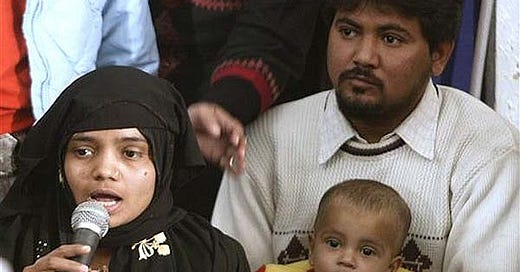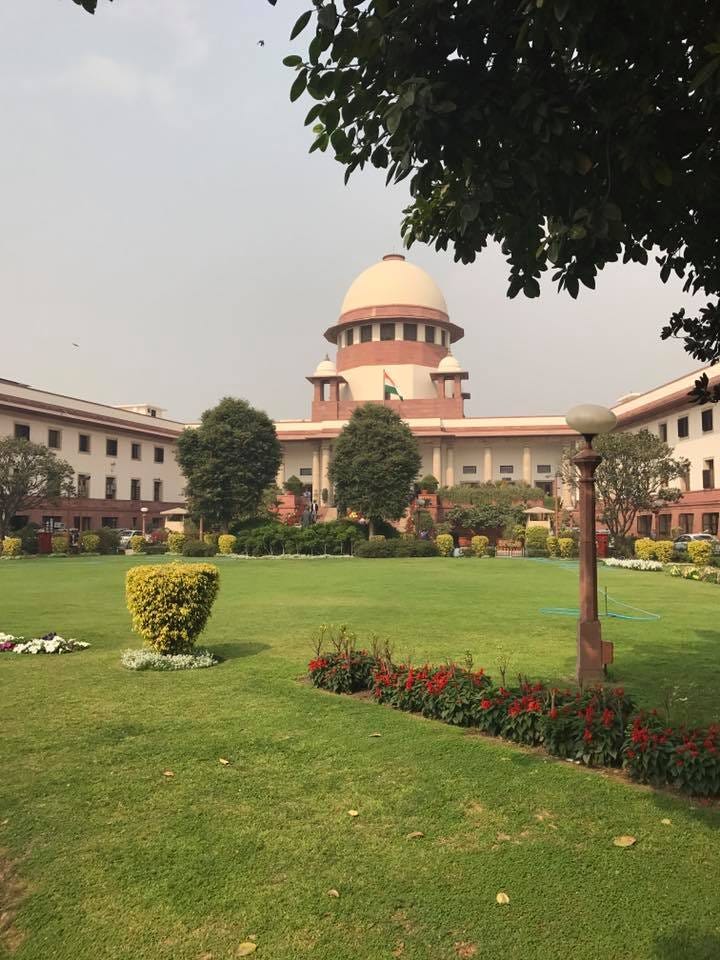Bilkis Bano Convicts' Case: Supreme Court Verdict on 8th January
Will have far-reaching implication on the case of release of Bhai Balwant Singh Rajoana, convicted for the assassination of the then Punjab CM, Beant Singh, and other "Bandhi Singhs".
Bilkis Bano Murder-cum-Gangrape Convicts’ Remission Case
The Supreme Court of India is set to pronounce its verdict on a bunch of petitions challenging the remission granted by the Gujarat Government to the life convicts in the high-profile Bilkis Bano case on Monday (January 8). An Apex Court verdict upholding the remission granted to murder-cum-gang rape convicts is bound to have profound repercussions—both legal as well as political—in the demand for the release of Bhai Balwant Singh Rajoana, convicted for the assassination of the then CM Punjab, Beant Singh on 31st August, 1995. Although his death sentence has already been commuted into a life sentence by the President of India on a petition filed by the SGPC—he unequivocally pleaded guilty and filed no appeal or mercy petition against his death sentence—the legal principles set by the Supreme Court in the Bilkis Bano’s case shall apply across the board to his case as well those of other “Bandhi Singhs”. No amount of artificial distinction betwixt the two cases shall allow a different—rather discriminatory –treatment to Bhai Rajoana and other similarly placed cases.
Gist of the Matter Before the Supreme Court
The Supreme Court's impending judgment revolves around the remission of life sentences granted by the Gujarat Government to the convicts in the Bilkis Bano case, where 11 men were convicted for gang rape and murder during the 2002 Gujarat riots. The crime was particularly heinous, involving the gang rape of Bilkis Bano, then 21-years old— who was five months pregnant at the time— and the murder of 14 of her family members, including her first child, a 3-year old daughter, who was brutally murdered by smashing her head to the ground. The convicts were sentenced to life imprisonment but were released following a remission policy applied by the Gujarat government, a decision which has now been challenged in the Supreme Court.
The Gujarat government granted remission and ordered the early release of the 11 convicts, citing the completion of 14 years in jail among other factors like age, nature of the crime, and behaviour in prison. This move sparked a significant outcry and a series of legal challenges, leading to the current Supreme Court judicial review. The case's outcome is keenly awaited as it will set important legal precedents regarding the state's power to grant remission and the balancing of such decisions against the severity of the crime and the rights of the victims.
Powers of the President and the Governor
Under Articles 72 and 161 of the Indian Constitution, the President and the Governor have the power to grant pardons, reprieves, respites, or remissions of punishment, or to suspend, remit, or commute the sentences of convicted individuals. These powers are vast and discretionary, intended as a check on the judiciary and to correct possible judicial errors, but they are exercised with certain limitations and are subject to judicial review to prevent arbitrary use. These have to be ordinary exercised in accordance with the advice of the Council of Ministers.
Bhai Rajoana’s Offenses and Conviction
Balwant Singh Rajoana, a Punjab Police constable, was convicted for the assassination of then Punjab Chief Minister Beant Singh on 31st August,1995. The assassination was a high-profile case, with Rajoana receiving a death sentence for his involvement. Notably, Rajoana did not appeal against his sentence, pleading guilty to his role in the assassination, which was seen as an act of retaliation for alleged human rights abuses, particularly against the Sikh youth, during Beant Singh's tenure.
Commutation of Death Sentence to Life Sentence
On a petition filed by the SGPC, the President of India commuted Rajoana's death sentence to life imprisonment. This decision was part of a broader discussion on clemency powers and their application in politically sensitive cases. The commutation provided some respite but also set the stage for further debates on the use of clemency powers and the treatment of convicts in high-profile cases.
Reconciliatory Considerations
As the Supreme Court deliberates on the Bilkis Bano case, it faces the complex task of weighing the gravity of the offenses against the legal and policy frameworks for remission. The Court's decision will not only reflect on the Bilkis Bano case but will also influence the landscape for similar cases, including that of Bhai Rajoana. An upholding of the Gujarat Government's remission could pave the way for arguments favouring the further release of other convicted persons like Bhai Rajoana— who have spent nearly 28 years in jail— potentially serving as a reconciliatory gesture amidst a history of communal and political strife.
“The quality of mercy is not strained…..”
In summary, the Supreme Court's decision in the Bilkis Bano case holds significant implications for the legal principles surrounding remission and clemency. It is not merely about the fate of the personal liberty of the convicts in one case but will influence the broader discourse on justice, reconciliation, and the treatment of convicts in grave crimes. As the nation awaits the verdict, there is a collective yearning for a decision that carefully balances the demands of justice with the possibilities of mercy and reconciliation.
Invoking Shakespeare's eloquent reflection in "The Merchant of Venice," through the wise words of Portia, "The quality of mercy is not strained; It droppeth as the gentle rain from heaven upon the place beneath." As we consider the implications of mercy in the legal realm, it's vital that it falls like gentle rain, providing relief uniformly, not selectively. Mercy, when rightly applied, should reflect a universality in its reach, ensuring that no similarly placed individual is left parched by the whims of favoritism or arbitrary distinctions. Just as the gentle rain rejuvenates the earth without discrimination, so should the grace of clemency touch all deserving of its relief, upholding the true spirit of justice and human compassion.








In my perspective, the pivotal factors for granting mercy are genuine remorse and a fundamental shift in character. The release decision must carefully examine the presence of these criteria, particularly when the dispensation involved actively participated in the crime through the acts of its volunteers and planned omission of preventive measures by the establishment.
The display of remorse and character transformation becomes apparent when they are garlanded by the same ecosystem that initially applauded the heinous act.
Currently, I hold no optimism for justice but I staunchly resist labeling injustice as justice. Let speaking of truth remain the lone saving grace.
Brilliant articulation Boss.very succinctly put across covering all aspects of the case